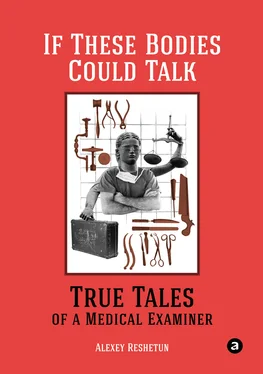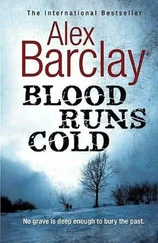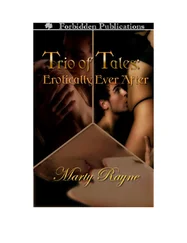Though forensic medicine is not secretive, it remains a mystery for most laypeople, rife with all kinds of legends, preconceptions, delusions, and myths. As you read this book, you will understand what it really means to be a forensic examiner, and what our job entails. You will learn how forensic medicine differs from pathology, when and why an autopsy is necessary, what kinds of injuries can kill someone and what they look like, as well as many other aspects of my specialty.
It is not a scientific textbook, and it is intended primarily for people who have little to no background in medicine or, more specifically, forensic medicine. For that reason, I avoid any specialized jargon and dry facts and figures, and have attempted to describe pathological processes as simply as possible.
There is nothing fictional in this book. All of the stories described are actual cases from my own practice or were relayed to me by trusted colleagues.
PART ONE. LAYING THE GROUNDWORK


1. WHAT EXACTLY IS FORENSIC MEDICINE?
The answer to that question lies in the term "forensic medicine" itself. There are many definitions out there in all kinds of textbooks and manuals, but I personally prefer Professor Sapozhnikov's rather short and sweet explanation: forensic medicine is "medicine in law." Unlike in many other countries, in Russia forensic physicians are separate from the police and are not under their control, though they do work very closely together. Despite relatively bare-bones budgeting in forensic science departments (morgues are always funded on leftover scraps), this ensures that we remain independent – after all, that independence is the very foundation of forensic science in the first place.
Forensic science is not a new branch of medicine by any stretch. People everywhere have always wanted to know how their bodies work, how they get injured, and why people die. Written records dating back to antiquity and Mesopotamia mention doctors taking part in court proceedings. I would love nothing more than to have a time machine to go back and watch those trials and listen to what my ancient colleagues had to say.
A bit closer to our own era, we might look at early Germanic law from the fifth through the ninth centuries AD in northern Europe, or the Alemannic laws, which already included the concepts of "damage" and "severity of damage" to determine the amount of compensation to be paid to crime victims. That brings us to the medieval concept of "God's judgment" – trial by ordeal – which took precedence over any secular court, when whatever a doctor had to say was the least of anyone's concerns. Or we might learn how the first autopsy was allowed to take place in the French city of Montpellier during the fourteenth century.
Next came the Constitutio Criminalis Carolina under the Holy Roman Emperor Charles V, which especially recognized cases requiring medical expertise, or the work of Ambroise Paré and many other great thinkers, who laid the foundations for forensic medicine as a science.
In the late eighteenth and early nineteenth centuries, as the Inquisition was abolished, several European countries began holding open trials, which often required an expert physician to publicly substantiate and defend his conclusions. This greatly contributed to the forensic medicine's development as a science.
More specifically, what about Russia? Various elements of forensic medicine go back to the tenth century when courts considered a liability for "beatings," "desecration," and "fornication," among other crimes. By the eleventh and twelfth centuries AD, the legal code of Kievan Rus doled out punishments based on whether any bodily injuries sustained were "light" or "severe." At the same time, people began examining dead bodies, attempting to determine the cause of death. Several specialized institutions were created during the 1500s, including the Apothecary Chancery, which, among other things, was responsible for establishing health and sanitation conditions and examining the body of anyone who appeared to have suffered a sudden or violent death.
Here are two examples of how the Chancery worked.
Tsar Michael of Russia wished to marry a maiden named Maria Khlopova, but members of the court were against the marriage, and informed the Tsar that his intended suffered from "falling sickness" (epilepsy). When the Tsar learned that these rumors were likely untrue, he sent his fiancée to be examined by a commission including three doctors, a bishop, and several noblemen, who pronounced her in good health.
In 1677 the Apothecary Chancery ordered the examination of a clerk named Efim Bogdanovan to determine "what illness he had died from." Physicians found that "the illness Efim had was kidney stones, and one of those stones grew large, and as a result, death befell him." [3] Самищенко С. Судебная медицина . – М.: Юрайт, 2015.
Going to the doctor was a scary business during the sixteenth and seventeenth centuries, as remedies were often more dangerous than the disease itself. It was not unusual for doctors or other well-meaning but uninformed people to accidentally kill or harm their patients. There was the documented case of a doctor named Mikhail Tuleischik getting drunk and accidentally selling a patient highly toxic mercury chloride instead of medicine. And in 1700, a nobleman named Saltykov was poisoned when a servant named Aleksei Kamen mistakenly bought him the wrong herbs. All of this led to a pair of laws in 1686 and 1700, which would later become part of the Complete Collection of Laws of the Russian Empire , "On punishments for those who do not know medical science and due to their ignorance of medicine, cause their patients to die." These were the first laws that considered any punishments for failed attempts to treat sick people.
And now we have arrived at the era of Peter the Great. Peter reformed just about everything he could possibly reform, and medicine, including forensic medicine, was no exception. His Article on Military and Naval Regulations touched on many aspects related to determining the severity of the injury and the cause of death. For example, the Naval Regulations (1720) included the following paragraphs:
"108. Whenever someone is killed in such a manner that he does not die immediately, but only sometime later, it is necessary to determine whether he died of that beating, or of some other disease. In order to do that, following his death, physicians must cut up the body and examine it for a cause of death, and submit a certificate of such to the court in writing, confirmed by an oath…"
"114. Should there be a brawl in which a number of people begin to beat one man, and he dies of a wound or fatal blow or many blows, it must be determined whether those who took part did so intentionally, and who delivered the fatal blow? If this cannot be determined, the death shall be ruled accidental, and they shall be punished for the brawl." [4] Ibid .
The Naval Regulation included examinations to determine whether someone was faking an illness: "Determine whether they are truly ill, and if there is any false pretense, and issue a certificate." [5] Ibid .
By the sixteenth century, forensic medicine was already capable of answering many questions that are still under the scope of a medical examiner's work, even today. Take, for example, this excerpt from the certificate of a forensic autopsy performed in 1731:
Читать дальше














